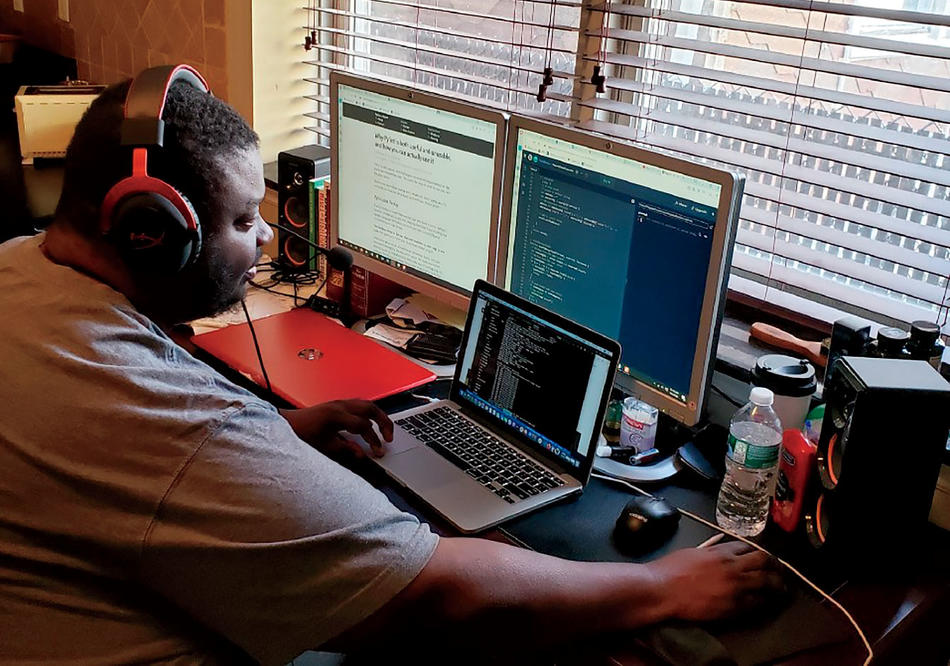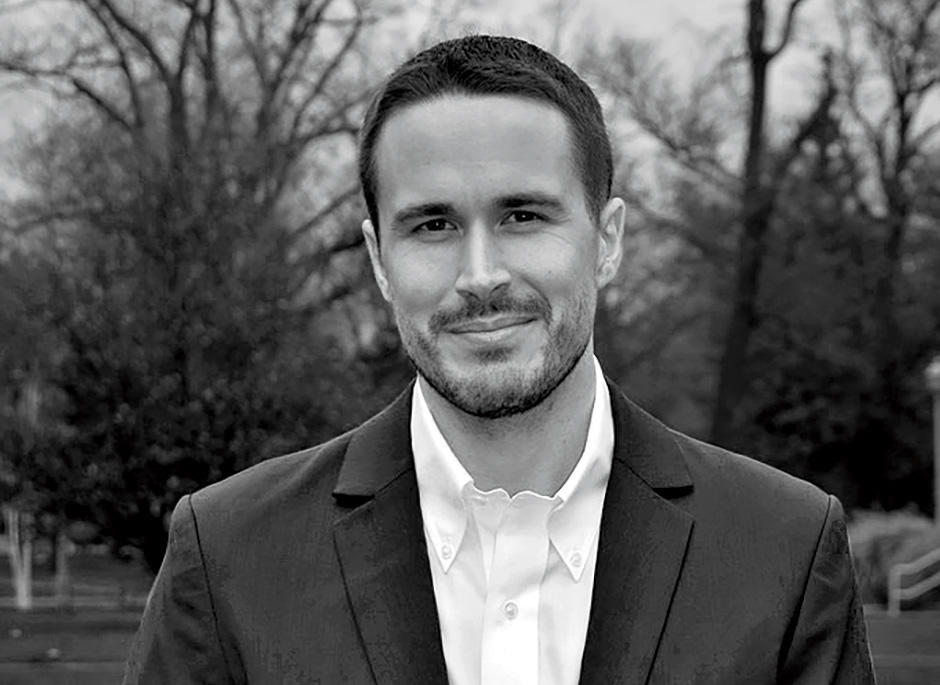“When you’re in prison, all you hear is that your life is over now,” says Aedan Macdonald, who spent four years in a federal penitentiary for selling marijuana. “You’re told that the best you can hope for when you’re out is a minimum-wage job.”
Macdonald, thirty-two, is ready to challenge that assumption. As the founder and director of the Justice Through Code (JTC) program at Columbia, he’s equipping the formerly incarcerated with skills to start careers in technology, rewriting the script on who gets to be a software engineer.
JTC, a joint venture between Columbia’s Center for Justice and the business school’s Tamer Center for Social Enterprise, offers people recently released from prison a free ten-week boot camp in coding. Students learn the basics of Python, a popular programming language used by companies like Google and Dropbox. JTC also provides workshops on career skills like negotiating salaries, building networks, and finding mentors, and works with partners to supply laptops to students who need them.
“With the right resources, anyone can learn computer skills,” says Macdonald. “Technology can be a great equalizer. Society tells us there’s one type of person who works in tech, but that’s not true. We need people of all backgrounds.”
The high US incarceration rate disproportionately impacts low-income people of color, and statistics show that, on average, formerly incarcerated people are five times as likely to be unemployed as the population overall. Those who do have jobs often live below the poverty line, earning a median yearly income of under $11,000 three years after release from prison.
Macdonald understands that his journey after prison was atypical. When he was released in July 2019, he enrolled in Columbia’s School of General Studies, and he plans to graduate in May. Living in New York, he noticed that the booming technology sector offered a steady supply of high-paying jobs. He took a coding boot camp outside Columbia and thought the University could run one too. Macdonald met with Damon Phillips, the Lambert Family Professor of Social Enterprise and codirector of the Tamer Center. Using the B-school’s intensive coding program for reference, they developed a course for people recently out of prison.
The pandemic has created an even tougher job market and more urgent purpose for JTC. In addition to impoverishing families, increased unemployment makes it likelier that newly released prisoners will end up back in prison: studies show that 77 percent of people are rearrested within five years of release, and unemployment is a significant predictor of recidivism.
“The criminal-justice system right now wastes human potential,” says Macdonald. “We want and need the formerly incarcerated to help society, not be imprisoned by their pasts. Learning to code is one way to tap into their potential.” Macdonald, citing a 2019 Bureau of Labor Statistics report, says a Web developer can earn a median salary of $73,760 without a four-year college degree.
JTC is now accepting applications for its third cohort of students. Its first class of seventeen students graduated in spring 2020, and it received more than 1,260 applications for the twenty places in its fall 2020 program. Some alumni have started tech apprenticeships. Others are being mentored by business-school students who are helping them meet their career goals.
At Emergent Works, a nonprofit software company, two JTC alumni have built a mobile app called Not911. It directs New York City residents in specific types of emergencies to local social services rather than the police. If a homeless person needs mental-health help, for example, the most effective first responder might be a counseling service. The formerly incarcerated engineers understood that.
Antwan Bolden, a spring graduate and a teaching assistant in the program, speaks to the transformative impact of JTC. He studied engineering before his incarceration but says that after his 2009 release, “so many doors were slammed in my face.”
“This coding program has been a lifesaver for me. Literally. There were times when I felt like I had nothing and suicide went through my mind,” says Bolden. “I’m just so grateful to the instructors at Columbia who treat us like human beings.”
The credibility of an Ivy League program made Bolden feel empowered. When he got a University e-mail address, that Columbia name next to his initials made a huge difference to him.
“It’s the small stuff, but that gave me hope,” says Bolden. “Give us a chance to prove ourselves. That’s all we ask.”




